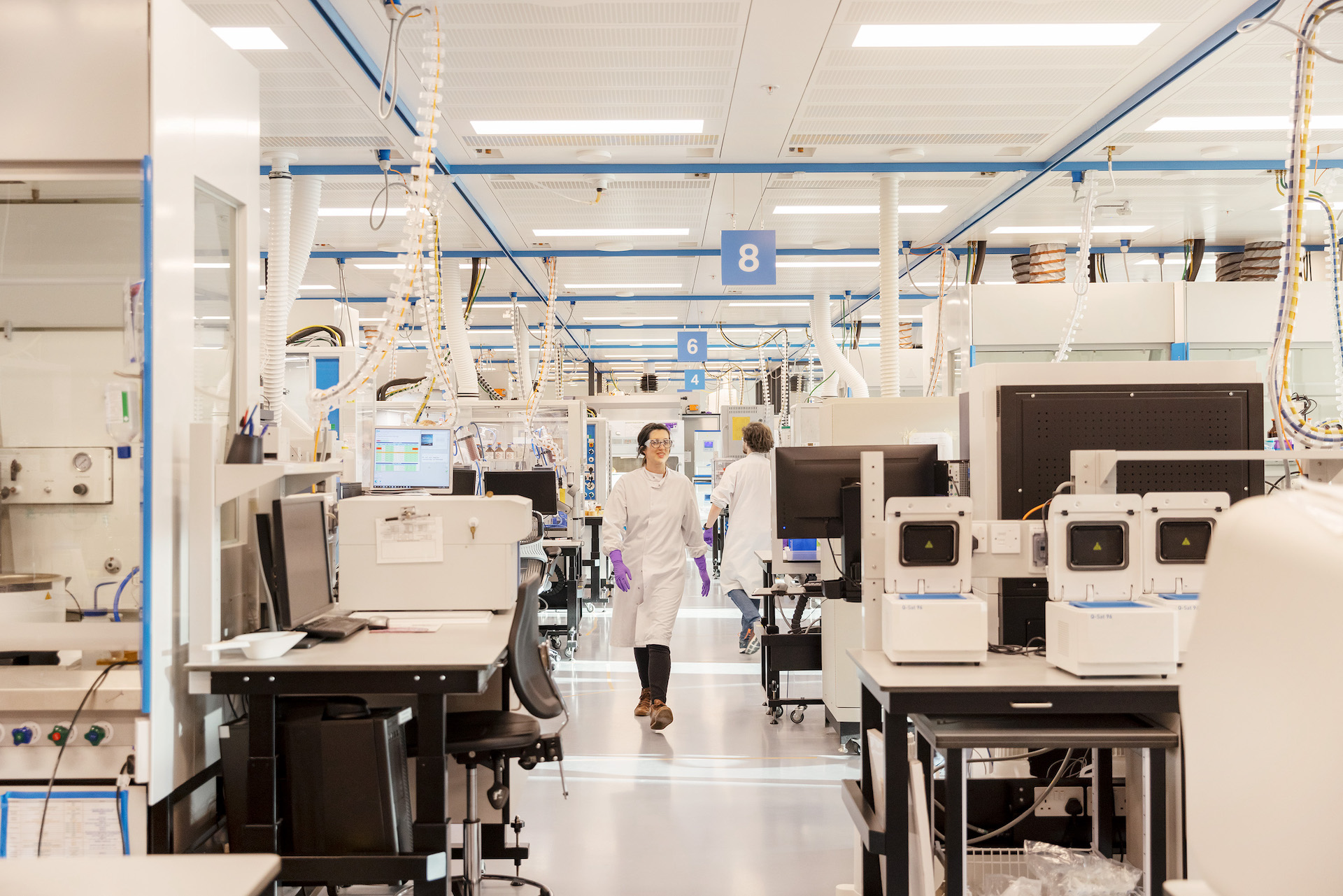Vaccines have transformed modern healthcare and are one of the most life-saving public health interventions in history: WHO estimates that immunisation saves the lives of 2.5 million people each year and protects millions more from illness and disability.
Yet, some fundamental scientific challenges remain in the field of vaccine technology. A vaccine stimulates the body’s immune response against a specific pathogen. This response must be strong and long-lasting enough to ensure high and long-term efficacy.
Our journey to understand how new scientific and technological advancements could make vaccines even more effective and immunisation last longer ultimately led us to look into adjuvants technology. Adjuvants are substances added to an antigen (the active ingredient in a vaccine) that can enhance the body’s immune response. On this basis we developed our first adjuvant technology, the Adjuvant System 01 (AS01).
The adjuvant breakthrough
Adjuvant technology potentially allows us to decrease the quantity of antigen needed for each vaccination dose, therefore enabling manufactured volumes to go farther. This is particularly important in a pandemic/health crisis where demand can rapidly exceed supply. Moreover, they may help activate an equally effective immune response in people of all ages.
AS01 was initially researched to support the discovery of the first licensed malaria vaccine. This vaccine is currently being rolled out to help protect children in Sub-Saharan Africa, with the support of WHO, GAVI and UNICEF.
The implications go far beyond combatting malaria. This same adjuvant has also been investigated and proved to have potential in other disease areas with major global health impact, such as tuberculosis, herpes zoster and respiratory syncytial virus (RSV) in older adults.
In short, we now have the technology to be able to develop new vaccines that have the potential to help achieve broader, longer-term, more persistent protection.
A thirty year journey
AS01 is an example of ground-breaking science, developed by our GSK teams and partners in Europe, with the potential to save hundreds of thousands of lives. It is also an example for how long such journeys can take: our research in this technology took over three decades.
The core of the science was developed in our R&D hub in Rixensart in Belgium, where we have a long history for vaccines R&D, dating back to 1958 and collaborations with an extensive network of European universities and biotech companies.
AS01 was discovered and developed by combining expertise from GSK scientists and external researchers. Its success relied on several factors.
First, we have built strong partnerships with scientific researchers and academics. Particularly, we collaborated with external partners on the preclinical and clinical evaluation of the adjuvants to understand better their effects on immune responses and their mechanisms of action.
Second, we received support from private and public initiatives at an early stage (such as the Malaria Vaccine Initiative – MVI – from the EU Commission, the Gates Foundation and PATH).
Third, our regulatory authorities showed great openness to assess new technologies and upskill to understand how this new innovation could benefit society.
Fourth, we were able to build global collaborations, including with the US, to advance the science into development and commercialisation.

How to remain a leader in innovation?
At GSK, we unite science, technology and talent to get ahead of disease. For Europe to remain competitive, and to be the home of innovation, like adjuvant systems, we need to boost the innovation ecosystem. In an era where global competition to attract talent and innovation is increasing, Europe risks losing its place as a global research hub if it does not create an environment where innovation is encouraged and enabled to flourish.
European policymakers need to act, if we are to preserve our global competitiveness in research and innovation in health:
Europe needs to invest more and better in skills and public-private partnerships. The wealth of scientific expertise in European universities has been essential to advance the science behind adjuvant technology. Today, Europe is experiencing a shortage of skills, with talent heading to other geographies. Europe needs to invest to attract and retain high-quality scientific expertise and maintain a framework which facilitates partnerships, both public and private.
Moreover, pharmaceutical research needs better incentives. The journey of scientific discoveries and development of new technologies is long, costly, high risk and often non-linear. Outcomes may reach beyond the initial focus of the research: AS01 proved to be successful well beyond malaria where it was first researched. However, during the course of the development of AS01, we also invested in researching many more adjuvant systems, some of which did not prove successful. A robust IP framework remains foundational in providing a predictable operating environment conducive to such high-risk investments.
Alongside a robust IP framework, we also need a regulatory system that is agile and able to help accelerate approval of innovation in Europe and keeps pace with rapidly developing new technologies. A fit-for-purpose regulatory framework – based on enhanced regulatory capabilities and regulators’ willingness to implement new innovations quickly – could significantly help accelerate innovation in Europe.
Finally, digitalisation is transforming the way we research and discover new medicines and vaccines. But for this we need appropriate digital infrastructure and should also optimise access to and use of health data for research.
Europe still is globally competitive in research and innovation in health, but we must not take our competitiveness for granted. It is easier to future-proof an innovation ecosystem from a position of strength, than to play catch-up once leadership has been lost.

